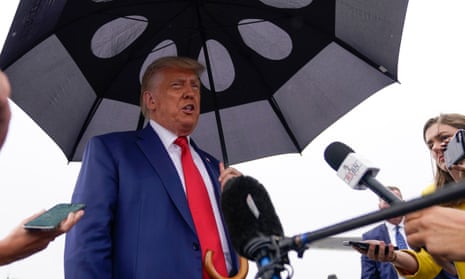These challenges contend that Trump ought to be removed from office because, in accordance with Section 3, he was employed by the federal government of the United States and, in spite of his oath to defend the Constitution, he participated in acts of disobedience against the country or provided support to those who opposed it prior to and during the January 6, 2021, attack on the Capitol.

Courts in states like Colorado, Michigan, Minnesota, and others are still debating whether to rule that Donald Trump is ineligible to run for president under Section 3 of the 14th Amendment. (Appeals are currently being heard in cases involving Michigan and Colorado.)
Table of Contents
Republican Stance during Reconstruction: Confronting White Supremacists and Safeguarding Post-Civil War Ideals”
Republicans detested white supremacists during the Reconstruction era because they were self-serving, threatened violence if they didn’t get their way, and solely cared about democratic ideas. They envisioned a situation in which, in the absence of constitutional amendments, the Trump Civil War victory would be undone and the 13th Amendment would become worthless if former Confederates and their supporters were allowed to regain power. They believed that anybody who swore loyalty to the Constitution but participated in disobedience ought to be barred from holding any public office in the future.
Trump’s Dismissal of Section 3 Claims and the Legacy of Republican Ideals: Protecting Democracy from Violence”
A team led by Trump brushes these accusations off as “crazy conspiracy theory” and refers to attempts to stop him as “interfering with elections.” These attempts have drawn criticism from certain election authorities and legal experts, who are generally not in the former president’s favor.The purpose of Section 3 is to stop anybody from using violence to attack Republican ideas about racial equality and free labor as it was originally understood in 1866. Republicans believed that Section 3 would empower people and stop mobs from dictating constitutional politics. Lincoln stood for opposing slavery, and those who encouraged the South to secede were perceived as depriving people of their right to vote.

Brad Raffensperger, Georgia’s secretary of state, believes that using Section 3 is merely another attempt to evade the democratic process. Former judge and Stanford Law School professor Michael McConnell thinks it won’t be accepted to take Trump off the ballot due to questionable reasons.On the other hand, Section 3 offers a means of evaluating the credibility of Trump’s present presidential campaign. It comes down to putting the nation’s understanding of democracy to use and letting it choose whether or not Trump is qualified to run for office once more.
These critiques, however, fall short of explaining Republicans’ persistence in putting Section 3 in the 14th Amendment following the Civil War. Although there hasn’t been much discussion of this clause in the last 150 years, the concerns it raises now are vital to preserving our democracy.
Understanding Section 3 of the 14th Amendment: Safeguarding Voting Rights from Political Violence Through History”
Section 3 of the 14th Amendment was important to those who drafted and ratified it because it prevented supporters of political violence from depriving individuals of their right to vote. Events such as the national sorrow of January 6 and attempts to rig the 2020 election, which might deprive millions of their right to vote, have been uncommon since the Civil War. Thus, the 150 years that this clause has gone unspoken speaks more to the workings of ordinary politics than to a misapplication of the Constitution.
The 14th Amendment sought to guarantee government by people who were obedient to the Constitution, supported majority rule, and had the moral qualities required for public office. A key component of this purpose was the constitutional disqualification of public officials who violated their oath of office.
Section 3 of the 14th Amendment: Interpreting Disqualification in Uprisings and Constitutional Reform”
The disqualification for participation in an uprising is directly related to the oath of office. During the 1800s, an uprising was defined as a group of people trying to compel others to reject the application of the law for the benefit of the public. Thus, this interpretation holds that Section 3 does not apply to authorities, whether living or dead, who fervently support constitutional reform, even if their goal is to undermine constitutional democracy or take away basic human rights.

Following the Civil War, Republicans became acquainted with these contentions. During discussions on Section 3 in the 39th Congress in 1866, proponents of white supremacist and slavery expressed worries about racial disenfranchisement and even incited fears of political violence. A small number of conservative Republicans and some Democrats felt that white Southerners ought to be allowed to cast ballots for Confederate leaders.
Senator James Guthrie of Kentucky said the people in his district trusted persons who were disqualified from holding office. Those who opposed the 14th Amendment believed that denying alleged traitors an equal opportunity to run for government would spark a new civil war. A Pennsylvania senator named Edgar Cowan issued a warning, stating that Section 3 would “plant the seeds of another rebellion.”


1 thought on “Debate Over Trump Eligibility Under 14th Amendment’s Section 3: Exploring Historic Context and Contemporary Implications””